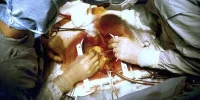According to a report published by JAMA Internal Medicine, having cardiologists away from hospitals for national cardiology meetings did not negatively affect Medicare patients admitted for heart conditions.
A large number of cardiologists take time off work to attend cardiology meetings. To date, how their absence affects patients was unknown.
Anupam B. Jena, MD, PhD, of Harvard Medical School, Boston, and co-authors decided to look more into this issue by analysing the differences in 30-day mortality and treatment such as angioplasty/PCI among Medicare patients hospitalised for heart attack and heart failure or cardiac arrest from 2002 to 2011. Dates of two national cardiology meetings were compared with identical non-meeting dates in the three weeks before and after conferences.
The findings showed that the 30 day mortality rate in teaching hospitals was lower among high-risk patients with heart failure or cardiac arrest who were admitted during meeting vs. non-meeting dates. Mortality rate for high-risk heart attack patients in teaching hospitals was similar between meeting and non-meeting dates but PCI rates were lower during meeting vs. non-meeting dates with no significant effect on mortality. Similarly, no major mortality or utilisation differences were found for low-risk patients in teaching hospitals or for high or low-risk patients in non-teaching hospitals.
“Our finding that substantially lower PCI rates for high-risk patients with AMI admitted to teaching hospitals during cardiology meetings are not associated with improved survival suggests potential overuse of PCI in this population,” the authors write.
However, the authors point out one major limitation with this study, and that was the inability to establish why the 30 day mortality rate was low for high-risk patients with heart failure and cardiac arrest who were admitted during the cardiology meeting dates. They speculate that this may be due to the fact that the intensity of care provided to these patients during meeting dates is lower and that for high-risk patients, the harm of this intensive care may actually be higher than its benefits.
While it is assuring to note that patient outcomes are not negatively affected in the absence of cardiologists, there is still a need to analyse how lower mortality rates can be sustained throughout the year.
Source: JAMA
Image Credit: Pixabay










